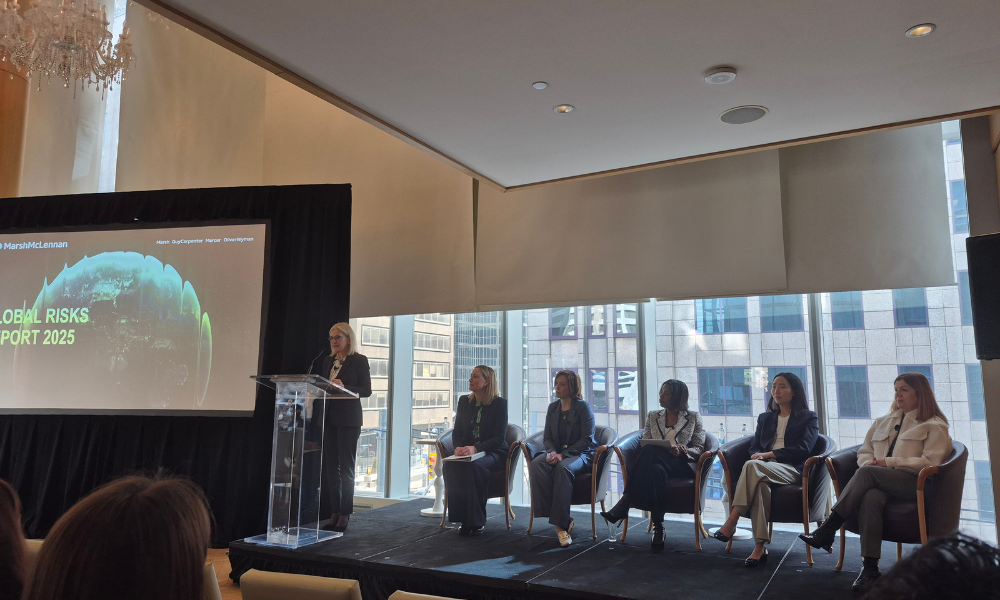Mercer's CIO highlights how active management and diversification can be the ultimate playing cards to handle Trump's trade threats

With renewed threats of tariffs and ongoing geopolitical tensions, institutional investors are facing uncertain times.
But there are proactive ways to handle this uncertainty, emphasized Christine Tessier during Marsh McLennan’s Global Risk Report on Tuesday.
While headlines have continuously focused on tariff percentages and political maneuvering, institutional investors should be taking a more nuanced approach, starting with a proactive governance structure, said the chief investment officer at Mercer Global Investment.
“Your governance structure will ensure that all decision-making points in the investment programs are well understood. You never want to find yourself in a crisis, trying to figure out who is supposed to make the decision, where that decision is supposed to be made,” she said.
“There's a lot of views circulating around different countries, tensions, and that should already be reflected in your governance structure and how you want your assets invested.”
Tessier emphasized that the current market environment ultimately favours active management, asserting that institutional investors should utilize active management with “talented investment managers” who have the flexibility to make timely decisions in response to changing market conditions.
“Where you can, work with talented investment managers, giving them room to make decisions,” she said. “There are people who have expertise in different areas that can leverage opportunity that presents itself in this uncertainty. Going back to that governance point around having people able to make the decisions when the moments arise.”
Additionally, institutional investors should be cautious about over-concentrating in specific regions or sectors. She makes the point to diversify investments across different geographies and not just focusing on domestic or US markets because spreading investments internationally can help manage exposure to specific country or regional impacts.
“Our investment program really emphasizes diversification mainly because a lot of the geopolitical risks we’re seeing can be binary, and there will be winners and losers at a micro level across different industries.”
“There’s a natural tendency to want to bring things close to home. But I would avoid knee jerk reactions, because the role of the US dollar, as a defense currency, is an important one,” she added. “A lot of plans and assets are aligned on long term strategic modelling.”
Tessier believes in avoiding emotional investment-decision making responses, noting that if asset managers and institutional investors do decide to move assets to a domestic rather than foreign location, it should be driven by “a longer term analysis and thoughtful reviews.”
“The only caveat is that you should be careful of geographies where shareholder rights can be at risk in this economic environment,” she noted.
Tariffs aside, Tessier acknowledged the immediate concern is Canada’s currency volatility. The Canadian dollar has already weakened, moving from approximately $.74 to $.75 to around $.69 cents. This leads to questions about managing exposure and the long-term effect on economic growth.
"Various risk reports are talking about job losses so there would be definitely a slowdown. That’s expected to have a weakening impact on our dollar," she said, noting this could widen economic gaps between Canada and the US, creating additional risk factors.
She also pointed to a silver lining for President Trump’s tariffs threats. While they’re largely seen as a negative, they do provide Canada with an opportunity to rethink its trade relationships and partnerships with other countries.



